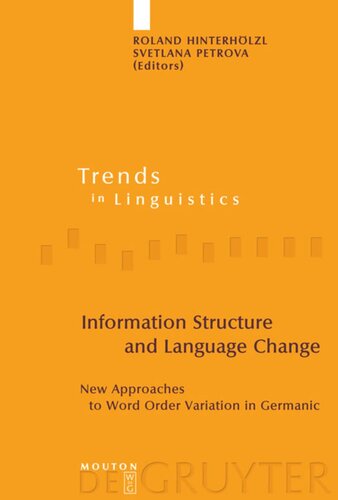

Most ebook files are in PDF format, so you can easily read them using various software such as Foxit Reader or directly on the Google Chrome browser.
Some ebook files are released by publishers in other formats such as .awz, .mobi, .epub, .fb2, etc. You may need to install specific software to read these formats on mobile/PC, such as Calibre.
Please read the tutorial at this link: https://ebookbell.com/faq
We offer FREE conversion to the popular formats you request; however, this may take some time. Therefore, right after payment, please email us, and we will try to provide the service as quickly as possible.
For some exceptional file formats or broken links (if any), please refrain from opening any disputes. Instead, email us first, and we will try to assist within a maximum of 6 hours.
EbookBell Team

4.8
104 reviewsThe volume presents new approaches to explaining word order variation and change in the Germanic languages and thus relates to one of the most prominent and widely discussed topics in the theory of language change and diachronic syntax.
The novelty of our approach consists in three main points. First of all, we aim at describing functional variety in the field of word order and verb placement in the early Germanic languages not as a result of language contact, but rather as a language-internal phenomenon related to stylistic and grammatical conditions in information packaging. Second, given that information structure is not directly accessible in texts from historical corpora that are available only in written form and bear no or little information on prosody and intonation, it presents various methods of retrieving information-structural categories in such texts. Third, it presents empirical studies on the relation between word order and information structure of the four main texts of the Old High German period and embeds these results in the wider picture of word order change in Germanic.
The volume will be of interest to students of German, English, and general linguistics as well as to researchers interested in diachronic syntax, philology of Older German, language change, information structure, discourse semantics, language typology, computational linguistics, and corpus studies.